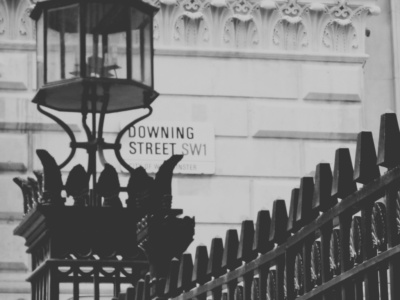Today, Chancellor Jeremy Hunt announced his Autumn Budget which some industry experts say “pulls the rug” from under investors with a dividend allowance cut of £2,000 to £1,000 next year and then to £500 from April 2024 in addition to a cut to the annual exemption amount for capital gains tax from £12,300 to £6,000 next year and then to £3,000 from April 2024.
Whilst other experts comment that it “kicks fixing the housing crisis into the long grass again”.
As the insidious rise in prices wreaks havoc on household budgets, there will be a big sense of relief that benefits have been uprated with inflation and that a rise in the minimum wage is also on the way.
Many have based spending decisions on having this extra benefits income in April to try and make ends meet and the worry that the promise would be whipped away was causing plenty of sleepless nights.
A lift in the minimum wage will be another small drop of comfort, but with inflation rising at the 41-year high of 11.1%, it still won’t be deeply felt.
The extra help for households on means-tested benefits in the form of £900 payments comes not a moment too soon.
Susannah Streeter, senior investment and markets analyst, Hargreaves Lansdown comments, the HL Savings and Resilience Barometer looks at how much cash people will have at the end of the month next summer, assuming the usual uprating, and for those on the lowest incomes the picture was bleak.
Among the bottom five deciles – so the lowest-paid half of the country – fewer than one in 100 people thought they would have enough cash left at the end of the month to be considered resilient.
Combined these measures will improve their vulnerable situations, but it’s still clearly going to be a tough time ahead for millions of people, until the painful rises in prices subside.
Entrepreneurs are being penalised with the increase in taxes on both capital gains and dividends, and those people who have diligently invested over the long term to build up their financial resilience will no doubt feel unfairly swiped by this grab from profits.
But as the cost-of-living crisis rages, affecting those on low incomes the worst, it also needs to be recognised that many owners of assets like shares or property have benefited from a huge upswing in values over recent years, while wage earners have seen their incomes stagnate.
So, taking a greater slice on money they make on their investments is being viewed as a fairer way of evening up the playing field, rather than clawing more money from pay packets.
However, there is a risk that the government may still end up receiving less in tax because investors hoard assets.
Tinkering with the capital gains tax exemptions will only penalise a minority of taxpayers but is still set to reap significant sums for the Treasury, which will which is why these measures have been swooped on.
It means investors who hold money in funds or shares outside a pension or an ISA will face a greater tax burden.
This rise is a stark reminder of the value of ISAs in protecting investors from having to consider CGT or dividend tax, so anyone who hasn’t exploited their ISA allowance to protect these investments may be inspired to do so.
For buy-to-let investors who own property as part of a limited company these changes could be a triple whammy, coming on top of rises in corporation tax.
They will not only have to pay more tax on dividends on profits from rent but now that CGT has been aligned with interest rates and they sell up, they could be faced with a hefty bill in just one hit.
This could discourage them from selling, causing parts of the housing market to potentially seize up. With house prices already facing a significant correction, if even more potential sellers try and avoid selling at what they perceive as a loss, fresh paralysis will add further uncertainty to a highly sensitive market.
Share prices of energy generating companies have retreated rapidly as it became clear that the Treasury will scoop up more money which has been falling into their profit baskets as gas prices soared.
A much bigger slice of profits of energy giants such as BP and Shell will now also be raked in, with the energy profits levy increased from 25 per cent to 35 per cent.
The door was inched open even further on the case for a windfall tax following comments made by Shell’s outgoing boss, Ben Van Beurden, that the tax burden had to fall on the energy sector to help the poorest in society.
That’s partly why the reaction has been relatively muted in terms of their share prices, with Shell dipping 0.3% while BP has fallen by 0.6%.
Wind farm operator Orsted had already said such a tax is fair if companies are making windfall profits from current high energy prices.
However, it along with other generators had already hedged the price of their output well in advance of the current crisis, so won’t have benefited fully from the surge on international exchanges so the nuances of how the tax will work will be important.
Now rumours of the levy on electricity generators have become reality shares have fallen back further, with SSE dropping 3.5%, Orsted falling 2.2% and Drax, 3% lower.
There will be concern this may lead to lower investment into renewables but given the clamour for acceleration companies could be hit by ethical investor headwinds if funding of greener cleaner projects is scaled back at a time when large dividends are still paid out.
The time limit set is important and will help with certainty for investment horizons.
BP had initially warned it may scale back North Sea investment after the first windfall tax was announced but then rowed back on that once a clearer timescale was set.
For the government there is a risk that energy prices will continue to fall back, which will limit what can be creamed off.
Brent crude has dropped back to below $92 a barrel as worries about weakening demand have risen and geo-political tensions have eased a little.
Streeter continued, gas prices have also retreated, and are around 70% below the summer peak, but they have been highly volatile and may tick back upwards as cold weather is set to sweep into Europe.
Ben Woolman, Director at Woolbro Group, comments:
“By side-stepping Britain’s crippling housing crisis, the Government has again kicked one of the biggest socioeconomic crises of our time into the long grass.
The prospect of owning a home is fast becoming an unachievable dream for many.
And despite claiming to be the party of ownership, the Tories have done very little to help struggling first-time buyers onto the property ladder.
It has been well over a year since the then chancellor Rishi Sunak vowed to turn ‘Generation Rent into Generation Buy’.
Since then, we have seen house prices surge to eyewatering new highs, soaring mortgage rates and the looming end of the Help to Buy scheme.
Today, young people are grappling wither higher energy prices, higher food costs and higher private rent prices.
There has never been, therefore, a more critical time for the Government to treat the housing crisis with the sense of urgency it warrants.
Firstly, Britain’s antiquated planning must be reformed in order for the country to build the new homes it so desperately needs.
It is not right that new homes for young families are being blocked by local politicians who care only about appeasing anti-development constituents.
Secondly, a replacement to the Help to Buy scheme must be rolled out as quickly as possible to avoid a slowdown in the construction of new homes over the coming years.
Failing to act now benefits nobody – not least the Conservative Party, which risks being punished at the polls by those still trapped in the private rental market come the 2024 general election.”
Tomer Aboody, director of property lender MT Finance, comments:
“Higher taxes, combined with continued increases in mortgage rates and the cost of living, will undoubtedly cause concern for households as to how they will cope over the next couple of years.
Although the bad news keeps coming, the long-term outlook should be brighter on the other side of the recession as consumers look to manage their outgoings.
The Government is maintaining the stamp duty reduction for now in the hope that banks can also be more flexible when it comes to mortgages.
This will enable the housing market to continue to perform, along with associated businesses within the sector, which is so important for the wider economy.
By the time the stamp duty cuts are phased out by 31 March 2025 the UK should hopefully be in a much better place, particularly as long-term interest rates should be lower as inflation is brought under control.”
Charlie Ardern, head of Cluttons’ Manchester office, comments:
“It was good to hear that levelling up remains a key priority together with the commitment to the northern powerhouse and the HS2 to Manchester.
As the UK’s second capital city, having such quick access to and from London is critical infrastructure for the continued growth of the north. The impact on the Manchester market since the Government announced it would be moving 2500 jobs here with a brand new Govt hub built in 2025 was pronounced.
Such a move provides a huge boost to investment, activity and brings with it yet more jobs – all of which have a knock on effect of positivity on the local market as a whole.
Going forwards, we need to see and hear more of this – not just in Manchester but across the North and indeed all over the UK.”
Darren Zitren, head of network estates management at Cluttons/partner in the Manchester office:
“As the chancellor intimated, Connectivity is key to levelling up the UK because this fuels economic growth, investment from businesses, talent, jobs, and access to social benefits and healthcare amongst many other things, including access to energy infrastructure which is going to be even more crucial going forward.
Hence, we hope that the reinforced commitment to the rollout of Gigabit capable superfast broadband and 5G infrastructure remains a priority for Rishi and his new cabinet, and it gets a higher pegging on the list of Levelling Up priorities – and budget – than the previous administration’s watering down of targets.”
Tom Bill, Head of UK Residential Research at Knight Frank, said:
“The cut to the capital gains tax exemption is a further disincentive for landlords but, like other announcements in the Autumn Statement, it could’ve been worse.
It will disproportionately affect landlords of lower-value properties but CGT rates have not been aligned with income tax, so a material drop in demand or a wave of selling is unlikely.
Landlords have faced a series of tax hikes in recent years but private rented property accounts for 1 in 5 of English households.
At a time when living costs are rising so quickly, policy should remain rooted in economics, encouraging landlords to remain in the sector and keeping downwards pressure on rents.
By reversing the stamp duty cuts announced in September from April 2025, the government has effectively announced a 28-month stamp duty holiday.
It may help stimulate activity closer to the deadline but it appears to contradict the message sent by the government during the pandemic that a liquid housing market was good for social mobility and had wider economic benefits.
For anyone buying or re-mortgaging, the message is that mortgage rates should continue to edge downwards in coming months and the stability of recent weeks will continue.
However, the spike in borrowing costs that followed the mini-Budget in September was a reminder that a 13-year period of low rates is over, which we expect to put downwards pressure on prices as they fall back to the level they were at last summer.”
Will Matthews, Head of UK Commercial Research at Knight Frank comments:
“Despite Chancellor Hunt’s rapid reversal of September’s mini-budget give-aways, many worried that today’s Autumn Statement would contain a few more nasty surprises.
The timing was hardly fortuitous, with recent data showing UK output in decline and inflation running at 40 year highs.
In the event, however, there were few changes to what had already made its way into the public domain.
The need for tax rises and spending cuts has been clearly articulated in recent weeks, calming domestic financial markets and reining in spiralling UK 10 year gilt yields, which having risen to a peak of 4.5%, are now back to slightly more palatable levels of around 3.3%.
With much of the renewed fiscal restraint already priced in, further significant reductions in gilt yields were never on the cards today, but in uncertain times, maintaining the status quo is enough to count as a win for real estate debt markets.
Neither were there any major surprises for corporate occupiers or the wider business sector, the planned rise in corporation tax to 25% by April 2023 having previously been confirmed.
The real estate industry will have been watching out for updates on the previously announced investment zones – areas designed to stimulate regeneration in local economies.
Another particular focus for the industry will be the significant investment announced to help reduce the UK’s energy demand over the next decade, for which at least some of the responsibility will fall upon those in the built environment.
This was always going to be a statement full of difficult compromises, but it leads to two potential opportunity areas for the real estate sector, one practical and one structural.
Firstly, as government departments come under even greater financial pressure, there will be an added incentive to release assets or sites for sale or redevelopment.
Secondly, although the government recommitted to a number of investment projects and growth in capital spending, there will also be a growing role for the private sector to drive economic, technological and social infrastructure, should it wish to.
Is that an attractive proposition?
The real estate sector’s contribution to the success of UK life sciences, health care, education, data centres and countless other areas suggests that for the right opportunity, it certainly can be.”
JLL Head of EMEA and UK Living Research Nick Whitten comments:
“The financial markets have already responded positively to the Chancellor’s attempts to ‘balance the books’ with the cost of debt, and ultimately mortgage rates, falling steadily in the past week.
But households are going to feel even more of a squeeze through the current cost of living crisis as a result of the belt tightening measures introduced in the Autumn Statement.
However, we do not see a house price crash occurring in the UK, more of a correction.
The next 12 months will see a sluggish market in which buyers and sellers haggle over price and ultimately less transactional activity occurs.
The supply of new homes for sale will gradually becoming constrained.
Against this backdrop, JLL is forecasting that UK house prices will fall in value in 2023 by 6% which equates to an average discount of £17,500 from the average UK house price of circa £290,000.”
CEO of RIFT Tax Refunds, Bradley Post, commented:
“A substantial hike in taxes in an attempt to plug the fiscal ‘black hole’ that is supposedly threatening to swallow the nation. While the average person has escaped relatively unscathed with respect to their day to day earnings, changes to capital gains tax allowances will certainly hurt those due to benefit from longer term, strategic investments, perhaps most notably the nation’s landlords.
We’ve never been squeezed harder where tax contributions are concerned and the chancellor needs to be cautious here, as he risks pushing our economy from inflation mitigation into a long and deep recession.”
CEO of Alliance Fund, Iain Crawford, commented:
“Today’s budget can very much be viewed as an attempt to restore stability and get a handle on record inflation levels following the previously disastrous attempts by Truss and Kwarteng.
Short term pain for long term gain is no bad thing and while we’ve seen a huge hike in taxation costs to some, it can be argued that those due to be hit hardest are in the best position to stomach these increases.
Where initiatives directly concerning the residential property market are concerned, it’s unfortunately a case of nothing to see here, other than the rub being pulled from beneath homebuyers with the removal of the stamp duty reprieve come April 2025.”
Director of Benham and Reeves, Marc von Grundherr, says:
“Homebuyers have been stretched to breaking point in recent weeks, not only by the rising cost of living, but also due to increasing mortgage costs.
So they may well feel that they’ve been shown the cold shoulder today with the absence of any meaningful initiative designed to help stimulate the UK property market.
Even more so given that the previous reprieve offered in the way of a stamp duty cut will now only run until the end of March 2025.
At the same time, Jeremy Hunt’s raid on middle England and landlords, in particular, by slashing the amount exempt in capital gains tax is likely to disconnect this government even further from their traditional electoral base.
It’s a risky strategy and one that confirms that the Conservative’s are no longer the party of the UK homeowner, which is sure to lose them votes further down the line.”
Managing Director of Barrows and Forrester, James Forrester, commented:
“The property market has remained largely defiant despite the turbulence of recent weeks and so it’s no surprise that the nation’s homebuyers and sellers have been ignored this time around, although today can be viewed as a golden opportunity missed to push growth within the sector.
That said, the government seems intent on taxing until the pip squeaks and this is only going to add to the woes of many ordinary folk, as they continue to struggle in keeping their heads above water where their household finances are concerned.
The only silver lining is that many of today’s announcements don’t kick in for a while and this lot may not still be in government by then.
We can expect the nation’s tenants to feel the brunt, as yet another government initiative designed to deter landlords, this time in the form of a capital gains tax raid, reduces the level of stock available and drives up rental values.”
Managing Director of House Buyer Bureau, Chris Hodgkinson, commented:
“A bleak budget for the nation, as the government ramps up taxes while we stare down the barrel of a 41 year high in inflation.
As a result, we can expect the Bank of England to act with a further hike to interest rates in the immediate future and this will put even greater strain on our household finances.
As it does, we can expect the property market to suffer as buyers can no longer afford to purchase at previous price thresholds, bringing house prices down in the process.
With changes to capital gains tax we can also expect an influx of stock from hard pressed landlords, who have grown weary of the government’s consistent attacks on their profit margins and are looking to off load their buy to let portfolios.
In doing so, this additional stock will also help balance the scale of supply and demand, contributing further to a muted housing market.”
Jeremy Leaf, north London estate agent and a former RICS residential chairman, says:
“As with all these financial statements, sometimes it’s as much what the Chancellor doesn’t say as what he does, with the full implications becoming apparent at a later date.
On the face of it, the Chancellor appears to have done very little to compromise the property market and number of transactions, which is good news.
Of course, there will be less money in people’s pockets when it comes to buying property and worries about rising interest rates will remain.
There may be an issue for larger development projects where investors and builders will be thinking about longer-term implications for the stamp duty changes which are scheduled for March 2025.
The capital gains tax changes are disappointing as they could have a significant impact on the rental sector. The fact is that we need landlords; everyone knows rents are too high and there are not enough affordable homes to sell or for rent.
We want to encourage landlords to stay in the sector and new ones to enter the market, reducing the upwards pressure on rents and stemming the flow of departure.
Hopefully, landlords won’t sell now before this measure is introduced, as that will be bad not only for the rental market but the sales market too, as it will increase supply in the latter, reducing property prices more rapidly and therefore undermining confidence.
If properties flood the market as a result, it won’t be good for sales or lettings.”
Chieu Cao, CEO of Mintago, said:
“After the chaos and economic fallout that occurred after the governments last fiscal policy announcement, Jeremy Hunt’s first Autumn Statement as Chancellor was always going to have a significant impact on the financial wellbeing of hundreds-of-thousands of people across the UK.
However, the measures announced today – from tax rises to spending cuts – are unlikely to induce any kind of confidence among Britons who are worried about their short and long-term financial wellbeing.
Already this week, we have seen reports that suggest that 9 in 10 retirees are considering returning to work.
Clearly, peoples’ long-term financial security is not at the level that it should be. Similarly, Mintago’s research has found that 70% of people are worried about their immediate financial situation deteriorating further.
With the level of spending cuts announced today, the government is obviously unable to provide the support that many people need; employers, therefore, must step up and question what more they can do to support their staff.
Encouraging employees to engage with their pensions to a greater extent, for example, would certainly contribute to employees’ long-term financial security.
Moreover, providing support like financial planning platforms or connecting staff with financial advisers would be some good first steps in achieving this.
Indeed, such support could better equip staff to overcome any short-term financial challenges that they might face in the coming months as well.”
Mohsin Rashid, Co-founder of ZIPZERO, said:
“Misery for millions – that is the result of this budget.
And we must never forget why the price we all must pay is so high.
The failed Truss experiment left a burning hole in the UK economy, the size of £30 billion.
From irresponsible to unforgiving government, the bitter return to austerity will no doubt double down on hardship across the whole country.
People are struggling, and they are desperately concerned. Concerned over how they will pay their bills, keep the lights on and put food on the table. This government’s response is unconscionable: unnamed Council tax ‘flexibilities’, disenfranchising residents from their rights to approve large hikes, and stripping down energy support into a skeleton package unfit to carry consumers past the finish line, all while raising personal taxes.
Has the government forgotten its own mantra?
There’s no magic money tree.
Asking the country to play Sophie’s Choice over which essential item to sacrifice this week will only promote personal and national decline, in a new age of Victorian misery.
While there are no fruitful horticultural solutions out there, consumers should take advantage of all money-saving opportunities at their disposal.
In particular, the ongoing fight for the right of consumer data is revolutionising the marketing sector and providing consumers with generous cash rewards through direct-to-consumer marketing platforms.”
Jatin Ondhia, CEO, Shojin, said:
“Sunak and Hunt have been caught between a rock and a hard place.
The pressure of plugging a £55bn fiscal hole has led to a Dickensian Autumn Statement, which left little room for any rabbits to be pulled out of the hat. While the main focus of these austerity measures is to attempt to patch up the country’s finances without rattling the markets, the giant elephant in the room is that the housing crisis is deepening.
The affordability, quality and volume of homes is worsening for residents, as the upwards pressure on rent is being exacerbated by rising demand and a dwindling supply of homes.
This is a national issue and one that can only be solved by taking decisive action to support housing development and boost the delivery of new homes.
With housing representing the highest living cost for most, we cannot afford for this ongoing crisis to be once again swept under the carpet in the face of mounting fiscal pressures.”
Sam Martin, CEO, Peckwater Brands, said:
“Prominent voices from the hospitality space have been calling out for direct relief and support ahead of this and every other financial statement, but time and again no special measures are announced to support hospitality businesses.
Businesses that have survived the pandemic, lockdowns, staff shortages and supply issues will now have to face the fresh challenges of austerity and downturn.
The measures announced today like tax relief and the energy price guarantee will go some way to safeguarding our independent pubs, cafes, restaurants, and bars – though only time will tell if they will be enough.
We all hope that these measures will be enough to ensure stability and growth in the long term, but even with the intervention that has been announced, I predict a difficult year for hospitality businesses.
Consumer spending will be reduced significantly, and supply and staff shortages remain a major challenge for many.
Hospitality is not just vital in providing jobs and revenue for the economy, it provides an invaluable part of daily life to millions around the country.
Every venue saved is a reason to celebrate, but with our research showing that only 59% of pub owners believe their business will still be open in 12 months, we can only hope that the measures announced today will make a difference.”
Paresh Raja, CEO of MFS, said:
“With a £55bn fiscal black hole to fill, Hunt’s task today was far from easy.
Admittedly, the austerity measures announced in the Autumn Statement will contribute to reducing the deficit. However, the announcement will do little to settle the nerves of those in the buy-to-let sector.
In the midst of rising interest rates and the aftermath of the mini-budget, buy-to-let landlords are seeing the value of their assets decline, while the cost of borrowing and property maintenance continues to rise.
These issues have not been addressed today and are harming the viability of owning a buy-to-let property, which is forcing many landlords to consider selling their properties.
In fact, according to MFS’ research, 40% of landlords are now planning on selling one or more of their properties in the next 12 months; such an exodus from the market would present an apocalyptic challenge to an extremely competitive private rental sector that is already grappling with rampant demand and a perennial undersupply of homes.
Make no mistake, if the Government fails to support buy-to-let landlords in the months to come, such a situation would be catastrophic for renters.”
Giles Coghlan, Chief Market Analyst, HYCM, said:
“With tax hikes and public spending cuts leading the agenda, today’s budget marks a stark return to austerity to an extent not seen since the aftermath of the 2008 global financial crisis.
To calm the markets, the overarching sentiment of Chancellor Jeremy Hunt’s statement was that the UK now intends to live within its means, without stifling growth.
Ultimately, there were few surprises – a strict, ‘kitchen sink’ budget had already been priced into the GBP, and bond markets tend to like austerity because it is disinflationary.
This is why UK Chancellor Hunt said that the statement delivers a consolidation of £55bn and means inflation and rates end up significantly lower.
However, as the statement was released, expectations for next year’s interest rates remained around the 4.5% mark, albeit fractionally lower than prior to the statement.
As Hunt ushers out the era of Trussonomics, which tried to stimulate the economy too quickly, there is an equal and opposite risk that the Chancellor depresses the economy too quickly, which could cause yet more economic and political upheaval.
Hunt tried to deliver a statement that avoided both extremes.
On balance, this was as good as it could have been. The GBP sold off initially on the OBR’s projections for GDP to not return to growth until 2024, but the reaction was marginal.
The GBP is most likely to be pushed and pulled around now on the latest USD news, as the UK budget was fully priced into the market and pretty much as expected.
The UK Chancellor will likely be breathing a sigh of relief now.”
David Alexander the chief executive officer of DJ Alexander Scotland Ltd, which is the largest lettings and estate agency in Scotland and part of the Lomond Group, comments:
“Jeremy Hunt’s Autumn statement confirmed many of the rumoured policies which will impact the housing market for the next few years.
The freezing of the nil rate Inheritance Tax (IHT) threshold at £325,000 until 2028 means that more homeowners will pay much more tax on their estates for the next five years.
This will mean that the IHT threshold will have been frozen for 20 years with inflation eroding its value substantially over the intervening two decades.
If the IHT nil rate threshold had kept pace with inflation it should, by October 2022, be at £473,784 which is 45.8% higher than it currently is.
This figure has increased by £9,141 just over the course of the last month due to double digit inflation and will rise substantially over the coming years to make it worth a quarter or less by 2028.
The expected reduction in exemption rates for capital gains tax (CGT) has been confirmed and for landlords, property investors, and second homeowners there is now an increasing disincentive to invest in housing.
The rate is reducing from the current £12,300 to £6,000 by next April and £3,000 the following April.
This will be a further reason for people to escape the property market sooner while CGT is at its current level, and I would expect the private rented sector to shrink to reflect the decreased profitability these changes make.
The reduction in Stamp Duty Land Tax (SDLT) announced by Kwasi Kwarteng has been maintained but will now be time limited to 31st March 2025 with the aim of supporting the housing sector through the next few years as higher base rates impact on affordability and the expected reduction in values.
This is welcome and must be replicated in Scotland if we are not to develop a two-tier property market.
The Scottish sector will look increasingly expensive to enter without mirroring this valuable reduction in purchase costs and I would urge John Swinney to make a similar announcement in next month’s Scottish budget.
If he does not, then the Scottish market, and Scottish homebuyers will be at a considerable disadvantage compared to their peers south of the Border.
Without this reduction we may see a much greater slump in the Scottish market over the next couple of years.
This statement looks likely to settle the financial markets – clearly the main target today – and this will ultimately be beneficial for the wider economy.
But it is essential that homeowners, property investors, landlords and tenants are not paying too high a price for the fiscal incontinence of Liz Truss’ government.
We cannot continue to place a major burden of tax on the property sector without there being unintended consequences.
The CGT cuts will impact on the private rented sector which will impact on the availability of homes and the rent levels for tenants.
The freezing of IHT will impact on the value of estates being passed on the next generation.
While the disparity between Scotland and the rest of the UK’s stamp duty rates will have a serious effect on the attractiveness of our country as a place to live and invest.
For the financial markets and wider economy some harsh changes now will be beneficial in the medium term.
For the short term, however, there will be some pain and additional costs for all parts of the property market until debt levels fall, growth improves, and the end of the recession is in sight.”
Liz Field, Chief Executive of PIMFA, commented:
“While we support the Government’s long-term aim to stabilise the country’s finances and balance the books, regular changes to tax policy can be unhelpful and create confusion for those trying to save for their financial future or leave a legacy to their loved ones.
Clarity in terms of tax policy allows people to save and invest for the future, safe in the knowledge that there will be few sudden changes that require them to adjust their own plans.
The measures outlined in the Chancellor’s statement today will clearly impact on the ability of UK savers to put money aside as well as incentivising them to do so.
We would urge the Chancellor to keep these under review to ensure that millions of people are incentivised to save and invest in future.”
Simon Gerrard, Managing Director of Martyn Gerrard Estate Agents, commented:
“While nobody craves spending cuts and tax rises, we should welcome the fact the grown-ups are now in charge and are acting to stabilise the economy.
However, the Chancellor has missed a huge opportunity to inject confidence into the housing market.
The big danger, as the economy freefalls into recession, is the expected drop in transactional volume.
Put simply, if too few homes are sold we could see house prices tumble, fewer homes put on the market and ultimately, the very real risk of an entire generation of homeowners in negative equity.
Confidence is everything, and Stamp Duty reform could stimulate the housing market – particularly in the face of more expensive mortgages.
Let’s hope that Rishi Sunak and Jeremy Hunt both realise that a housing market in crisis is as detrimental to the economy as runaway inflation.”
Commenting on the initial market reaction to the Autumn Statement, Mike Owens, Senior Sales Trader at Saxo UK, said:
“In reaction to the UK’s Autumn Statement we’ve initially seen bond yields move higher and sterling sell off as the OBR’s new UK GDP forecast for 2023 was updated to -1.4%, which is a hefty revision from +1.8% previously.
There were plenty of tax reforms announced with the windfall tax on the oil & gas sector, levy on electricity generators, tax free allowances on dividends and capital gains also lowered.
All of these broadly in line with expectations although we have seen share prices of energy companies like SSE, Centrica, National Grid and Drax slip in early reaction to the news.
The extension of the energy price guarantee for a further 12 months should be positive for utilities.
Share prices of UK Banks are also gaining as the surcharge of profits over £100 million is to be cut to 3% from 8% from April 2023 in an effort to offset the impacted of the corporation tax rise.
The broad take is that both gilts and the pound have staged a meaningful recovery in the first few weeks of the Sunak government.
Today’s announcement of the Autumn Statement, which is fiscally prudent but nevertheless paints a bleak picture of the state of the UK economy, gives markets an excuse to take a little bit off the table.”
Nick Fell, head of residential at Rapleys, says:
“Given the focus on settling the economy, we did not expect the budget to have many commitments to boost funding in the built environment.
It was good to hear that a rent cap will help the most vulnerable tenants.
However, at a time where affordability is at an all-time low and 2.8m families in England alone live in substandard rental accommodation ranging from draughts to hazardous air quality, the focus must firmly be on how to fix the affordable housing sector more structurally.
Affordable Housing is in crisis thanks to a perfect storm of supply, costs and energy prices affecting viability; the inflexibility, lack of commerciality and empowerment of local authorities holding up developments if the AH quota isn’t met (30% of nothing is nothing!); and this to be top of everybody’s list as we head into a recession that the Bank of England says will last until mid 2024.
With institutional investment still flowing into BTR and other parts of the PRS, the Government has an ideal opportunity to work with and incentivise funding into the affordable housing sector.”
Reacting to the news that corporation tax will still rise from 19% to 25% in April and the reinforcement of the commitment to the climate pact, head of Building Services and Sustainability at Rapleys Lee Fraine said:
“Unfortunately, the rise in corporation tax and the halving of the CGT allowance will inevitably have a knock on effect on sustainable spending, despite the commitment to reducing energy emissions by 68% by 2030.
Businesses that had allocated investment towards sustainable infrastructure will likely reroute this back to their corporation tax provisions for example.
As an example, a business that earns £1m profit, will have £45,000 less to spend on sustainability kit, the same price as a ground source heat pump.
If you multiply this by the number of businesses in England that make a minimum £1m profit, over half a billion pounds in potential decarbonisation investment by businesses could be lost – which is a conservative estimate as many of these make much more profit that will now go to corporate tax – but even this is a very significant number in the fight towards reaching net zero.
With the 2025 targets meaning all commercial property needs to be an EPC grade of E or above, businesses have a very narrow window of opportunity to make the improvements needed or face not being able to lease or transact their properties.
As with all measures of this kind, there is a butterfly effect if you increase tax somewhere, you reduce investment elsewhere and sustainability for many will be the main loser.”
Ryan Jones, head of business rates for Cluttons’ northern region, said:
“Overall some really positive pledges in the Autumn Statement for business rates.
It is no surprise that there will be a transitional relief for business rates given there was a consultation earlier this year on the proposal.
However, unlike previous transitional relief schemes, there will be no downwards transition which is good news for those ratepayers who will see a reduction in their liability as a result of falling values.
There will be an upwards transitional relief scheme which will mitigate against those who will see an uplift in their liabilities as a result of April’s revaluation.
This is great news for retailers who were expecting the worst.
Those who will see increases will be protected so the likes of industrial and life sciences who continue to power the property market are also protected.
We suspect that this will all form part of the £14bn over five years pledged which also includes continued support for retail & hospitality with relief rising to 75% from 50% up to £110,000 per business in 2023 and 2024 which of course we welcome.
We will need to consider the detail of the scheme when full details are published, but we anticipate no major changes from that currently in place.
Confirmation of protection of small businesses whose Small business relief and rural rate relief will remain in place whatever happens to their valuation in April is also welcomed.
We are however disappointed that the multiplier has been frozen and not reduced as we head into a recession that will purportedly last until mid 2024.
Overall our long-term call remains for a more structural reform to business rates, to make it a fairer system and with this in mind the Online Sales Tax not going ahead is disappointing but expected due to the complexities it presented in its proposed guise.
The government are also introducing the new improvement relief from April 2024 to ensure ratepayers do not see an increase in their rates as a result of making new improvements for 12 months.
It is disappointing that this relief was not introduced sooner, but is a welcome support to encourage investment.
Our advice to businesses remains to quickly get to grips with their business rates valuations to take advantage of a possible windfall of backdated payments to the 2017 revaluation as soon as possible before the Chancellor’s reinforced date of the next revaluation on 1 April 2023.”
Laura Hoy, Equity and ESG Analyst at Hargreaves Lansdown:
“It was encouraging to see Jeremy Hunt address the underlying issue of energy efficiency in the UK with a pledge to double the government’s annual investment and decrease consumption by 15% by 2030.
A new energy efficiency task force will be set up to determine exactly how to funnel the additional £6bn pledged to the projects that need it most.
However, judgement on whether or not these programmes are adequate to truly make a dent in the necessary refurbishments around the country will be reserved for their unveiling.
The windfall tax has also been accelerated and extended as the government looks to the energy companies riding high on ballooning oil prices to plug its budget shortfalls.
However the increased tax rate does little to combat the loopholes that allow oil and gas companies to duck their tax obligations by reinvesting in new projects.
The eco-credentials of those projects aren’t tied to these breaks, so there’s no added incentive for reinvestment in green energy instead of handing those funds over to the government.”






















Comments